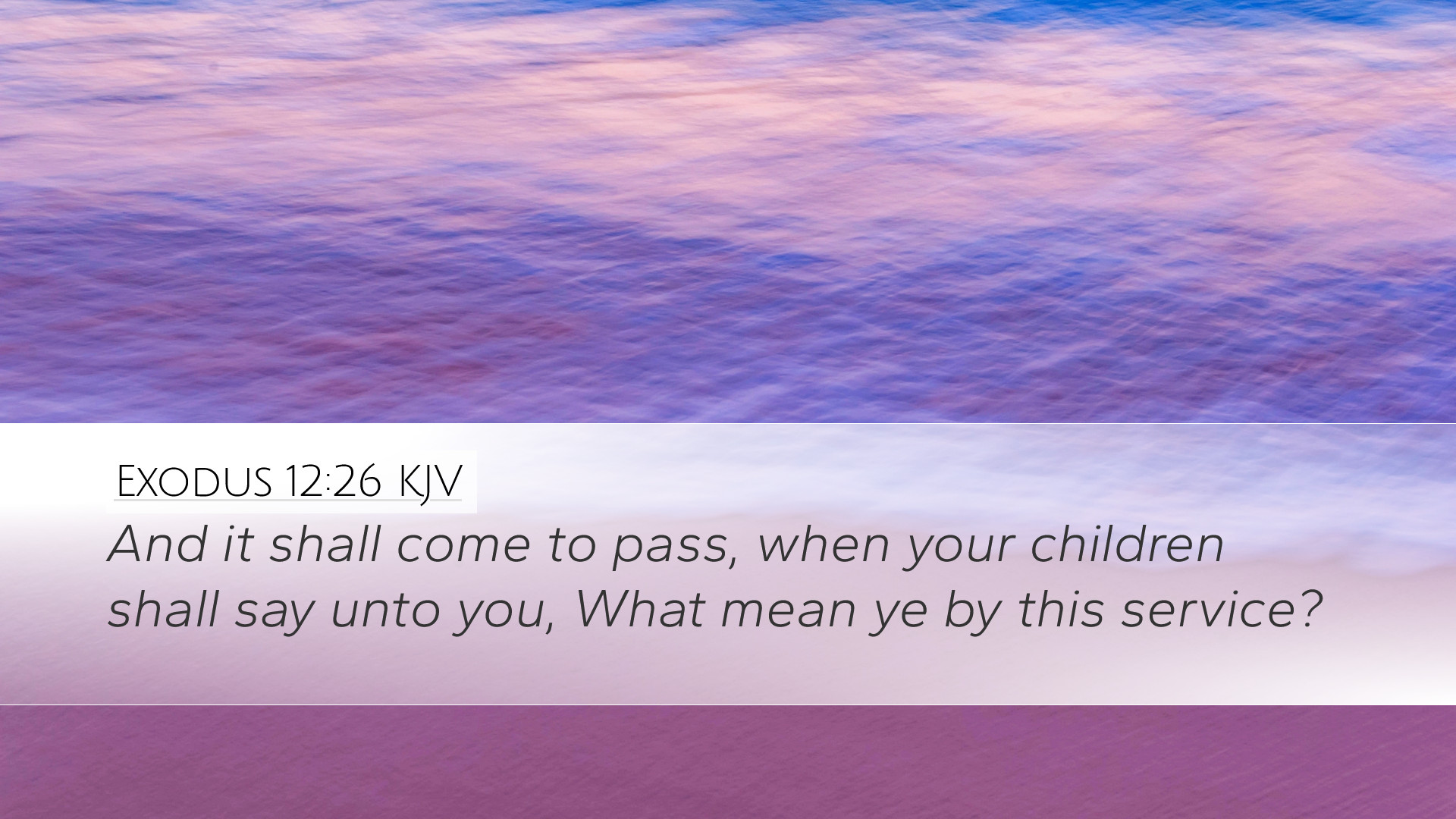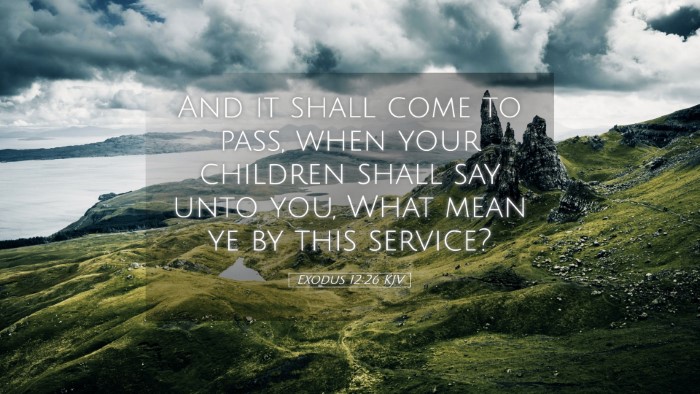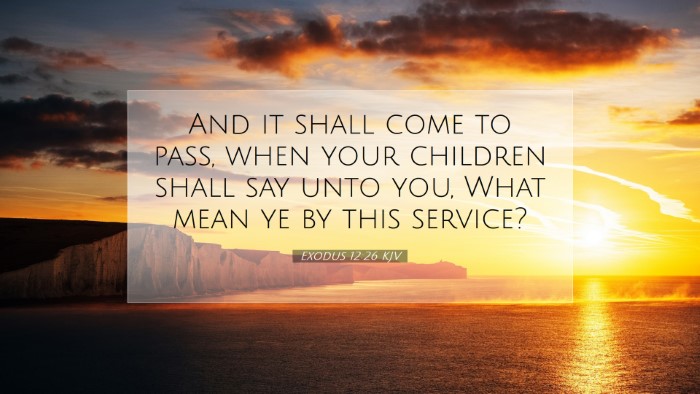Exodus 12:26 Commentary
Verse: "And it shall come to pass, when your children shall say unto you, What mean ye by this service?" (Exodus 12:26)
Introduction
This verse falls within the context of the Passover, a foundational event in Israel's history that marks their deliverance from Egyptian bondage. The Lord provided specific instructions concerning the Passover celebration, emphasizing its significance for future generations. Understanding this verse provides insight into both the intentionality behind religious observances and the intergenerational transmission of faith.
Meaning and Implications
As noted by Matthew Henry, this verse raises a pivotal question regarding the purpose and significance of the Passover. It invites parents to engage their children in meaningful discussions about their faith. The inquiry posed by children signifies not only curiosity but also an opportunity for teaching, reinforcing the idea that religious traditions carry deep significance and should be explained to younger generations.
Albert Barnes highlights that the service refers to the observance of the Passover. The children’s question signifies a natural inquisitiveness, which should be met by thorough explanations of both the symbols and the story of deliverance from bondage. This establishes an important pedagogical principle in spiritual upbringing: explaining the "why" behind rituals promotes understanding and fosters a deeper faith in children.
Adam Clarke furthers this discussion by identifying the covenantal nature of the Passover. The question from the children presents a moment of teaching where parents can recount the history of Israel’s escape from Egypt, emphasizing God’s mighty hand in salvation. This act of remembrance is vital in maintaining communal identity and faith. Clarke articulates that rituals such as the Passover serve not merely as traditions but as living connections to God's past interventions.
Intergenerational Faith Transmission
The mention of the children’s inquiry signals the importance of intergenerational dialogue within the faith community. It emphasizes the necessity for parents and mentors to not only practice their faith but to articulate its meaning and relevance. As highlighted in Acts 2:39, the covenant is not only for the adults but extends to their children—illustrating the inclusive nature of God's promises.
Matthew Henry discusses the implications of this transmission, asserting that failing to explain religious observances may result in disinterest in future generations. Children naturally seek to understand their heritage; thus, parents’ responses to their inquiries lay the groundwork for spiritual understanding and commitment.
- Teachability: Encouraging questions reflects a culture of inquiry and learning within the family.
- Significance of Rituals: Rituals serve as markers of faith; familiarity can lead to a deeper appreciation of their meaning.
- Community Identity: Shared observances foster a sense of belonging and continuity among generations.
Contextual Analysis
When examining this verse in its context, we find that the Passover is heavily steeped in symbolism, serving as both a historical reflection and a forward-looking posture in faith. The application of blood on doorposts signifies salvation and protection, prompting families to recount God's mercy and deliverance.
Albert Barnes suggests that the future generation’s understanding of service is integral to living faith. When children pose questions about the significance of such observances, they reflect a heart ready to learn and engage with God’s story.
Adam Clarke emphasizes that at the heart of this service is a reminder of their identity as the redeemed people of God—a key theme within the Scriptures. The Passover thus becomes a framework for understanding God's ongoing work in the lives of His people.
Conclusion
Exodus 12:26 serves as a call to action for parents, educators, and church leaders, inspiring them to foster an environment where faith is discussed, questions are encouraged, and histories are shared. As noted by all three commentators—Henry, Barnes, and Clarke—this verse highlights a multifaceted approach to faith formation that transcends mere tradition, presenting an opportunity for spiritual growth and understanding.
The dialogue initiated between parents and children about the Passover leads not only to a retrospective awareness of God’s deliverance but also establishes a framework for understanding future acts of divine salvation, culminating in the life and ministry of Jesus Christ. This verse invites all involved in spiritual education to embrace their role as narrators of God’s faithfulness across generations.


